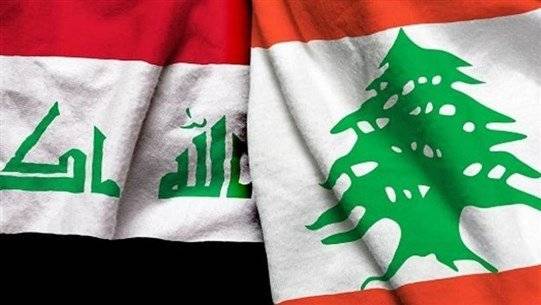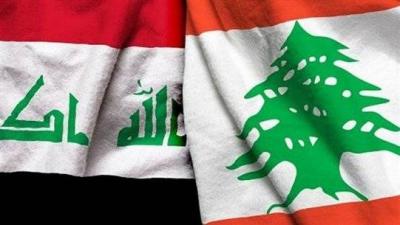A former leader of Hezbollah, now one of its fiercest opponents, claims that Hassan Nasrallah harbors a deep-seated hatred for Beirut and what this city represented in terms of the convergence of civilizations across economic, political, cultural, intellectual, and social dimensions. This sentiment was expressed in his closed meetings, where he mocked those who spoke positively about any aspect of life in the capital, even in artistic, cultural, or architectural terms. Nasrallah's parents moved to Beirut from the southern town of Bazouriyeh in the 1960s and settled in Bourj Hammoud, where their son Hassan was born. This was the case for many from the south who migrated to the capital in search of work, staying in what would later be termed the "belt" of misery due to overcrowding, poverty, and chaos in those areas. Lebanese people mixed with Palestinians and a few Armenians and other refugee ethnicities. Many remember Nasrallah's shock after the end of the July 2006 War when one of his men took him on a masked tour of Beirut to witness the destruction caused by him, later recalling only the youth sitting in cafés in Beirut eating ice cream "unconcerned with those who fell as martyrs," as he stated, interpreting this as Beirut's curse.
Political scientist Karl Deutsch, in a study titled "Social Mobilization and Political Development," argues that mobilization occurs when old social, economic, and psychological values break or vanish among large groups, making people open to new, often radical ideas and actions. The belt of misery was a fertile ground for the growth of new ideas. Nasrallah and others before and after him serve as excellent examples of individuals who absorbed new ideas, which in his case were radical religious concepts that shaped his persona through stages reminiscent of Dante’s hell until he reached where he is today.
There is no doubt that Hassan Nasrallah's ideology, along with his followers and masters in the Iranian Republic, is based on establishing an Islamic state of which Lebanon is a part, governed by the rightful Imam Khamenei. Nasrallah claims he has no choice but to adhere to this ideology. He also states that dismantling the Lebanese system is a prerequisite and a fundamental duty for achieving the objective; the chaos needed for the return of the Mahdi, which requires destruction and disorder, as repeated by former Iranian President Mahmoud Ahmadinejad.
If we place Nasrallah within this framework and assume he believes we believe everything we hear in terms of "spirituality" (if it can be called that), we understand the dimensions of his maneuvers in politically insignificant internal issues. He engages in silly local disputes, orchestrating false reconciliations, allocating shares in favor of a particular team, and conceding others. However, in the end, he has not strayed from his strategic agenda established since his existence for the dissolution of the Lebanese entity and the establishment of a new one that leads to the establishment of a "state of rights." If there are those who doubt this, we need only look at what has befallen the country since the party has held control over state institutions for more than 15 years, satisfied with every weakness, corruption, destruction, economic collapse, hunger, and violation of property and the state's prestige, all of which are blessed by Hassan Nasrallah because they are firm steps towards the collapse of the structure. What he does not endorse are attempts to revive Lebanon’s past, and he does not hesitate to use violence, intimidation, and murder to suppress these attempts, particularly cultural destruction and the ability to think outside the context.
In such an environment, General Michel Aoun formed an alliance to become President of the Republic. He genuinely believed the Secretary-General when he said he would not seek to turn Lebanon into an Islamic state, questioning the Lebanese: "Do you really believe the party will impose chador on women?" His supporters, particularly his in-laws, laughed, as if changing the country and its system could be reduced to merely wearing the chador. Aoun thought he could bring the party closer to the state, committing a fatal error as has happened repeatedly in the past, leading to calamities that have affected all Lebanese.
Three months before his term's expiry, it appears Aoun has realized the impossibility of bringing the party closer to the state. Many close to him who have split from him claim he will not leave the presidency at the end of his term and will strive hard to obstruct what remains of state institutions to have the final say in electing a new president for the country. If he cannot achieve this, he will attempt to establish a "state of Aounistan" to be headed by his son-in-law, Gibran Bassil. Hezbollah is well aware of Aoun's intentions and ideology, which align entirely with the party's goal of dismantling the entity to reach the ultimate aim.
Aoun's alliance with Hezbollah was based on the idea of facilitating his presidency and helping him regain presidential powers by abolishing the Taif Agreement. In return, Aoun would provide the party with Christian cover, supporting it domestically and in regional and international forums. While Hezbollah initially benefited from Aoun’s cover, the international isolation he brought upon Lebanon due to foreign policies and anti-Arab positions taken by Gibran Bassil, who dominates the foreign ministry, as well as the international sanctions imposed on Bassil, have significantly limited Aoun’s ability to act as a credible supporter in international circles. Domestically, General Aoun and his movement lost their monopoly on Christian representation – which was never truly there to begin with except in Aoun's illusions – with the recent parliamentary elections being a clear testament to that. Many parliamentary seats won by the Free Patriotic Movement were secured through Hezbollah's support and mobilizing Shiite voters to vote for the movement's candidates. In short, for the party, Michel Aoun has lost his utility and his existence now serves only to facilitate the demise of what remains of the entity.
On the other hand, Aoun has been unable to achieve what he wanted from the party regarding restoring presidential powers and abolishing the Taif Agreement. He has lost the support of the majority of Christians who had hoped to regain lost glory, only to see that what remains of their means to live under Michel Aoun’s presidency has been affected by Hezbollah’s hegemony and marginalization. Aoun and his son-in-law's attempts to incite sectarianism will not succeed, as the Christian community has seen through these strategies, and the saying "they didn’t let us work" has become a subject of mockery among most people.
There are now two significant barriers facing Aoun; the first is the opposition from major powers to his obstructing the election of a new president, which will lead to very severe sanctions against him and many of his aides and advisors, resulting in the unraveling of the Aounist coalition, leaving the general isolated in his home in Rabieh, just as he was isolated in the French embassy on October 13, 1990, following his refusal to elect a president and remaining in the presidential palace, giving reason for the Syrian forces to enter, bombard, and kill the best officers of the army who defended him while he escaped in his pajamas.
The second barrier is the party's failure to dismantle the entity for various reasons, including the winds of change that started with a rebellion against Iranian influence led by Muqtada al-Sadr in Iraq, which will mark the beginning of a retreat of the Iranian expansionist project, alongside the bombing that the Islamic Jihad has faced after returning from Tehran, which is attempting to execute a plan to "attack Israel from three fronts: Gaza, southern Lebanon, and the Golan," as if a mistake occurred prompting Nasrallah to remain preoccupied with altering the Lebanese chess pieces while accepting congratulations because Lebanese politics operates on the principle of the utmost vindictiveness suitable for Nasrallah.
Additionally, there is rising internal dissatisfaction in Iran regarding providing resources to arms in Lebanon, Gaza, Yemen, and Iraq while the average Iranian lacks basic requirements for a decent life, and many challenges exist for improving conditions under an agreement to lift sanctions.
Lebanon now stands before an insurmountable wall due to the Shiite duo’s dominance. The withdrawal of Aoun's specifically Maronite Christian cover to maintain Hezbollah's control over the country is no longer available. Should the Shiite duo turn to Sleiman Frangieh, they will discover that the Maronite cover Frangieh can provide is narrow and eroded, failing to assure the necessary cover. At that point, the party will seek a third team to provide the required cover in Lebanon to further its project of dismantling what remains of the state, posing a significant risk of inevitable division. Whenever one turns in Lebanon, this proposal echoes as the only solution, between an open life and a life governed by the edicts of imams.
Awaiting the presidential elections, Lebanon stands under a big question mark, with no one knowing to which precipice it will rise or from which it will fall. In short, Lebanon's fatal illness is called "Hezbollah." Will it sacrifice all its Iranian affiliations and return to a Lebanese identity, or will it commit suicide along with the rest of the Lebanese, because there will not remain a single green tree; everyone will end up in hell? Thus, the general discovered late, after the party had manipulated him for many years without even extending a genuine invitation to a lunch that wasn’t merely a part of a power-sharing arrangement where the meat was for the party and political men who have long slept with the duo in one bed, while the bones were thrown to the people.
Let us not deceive each other.




